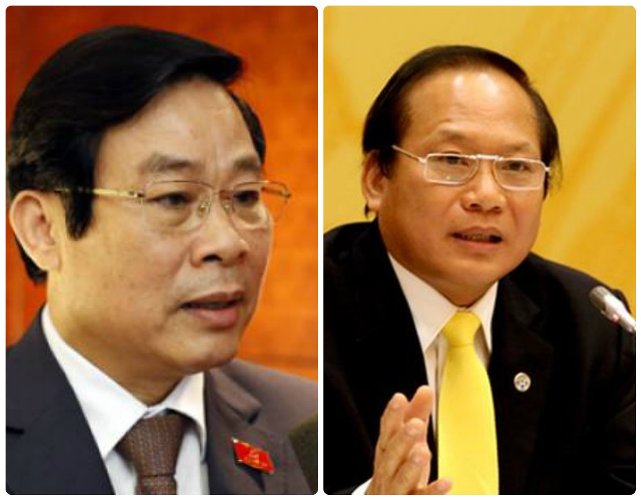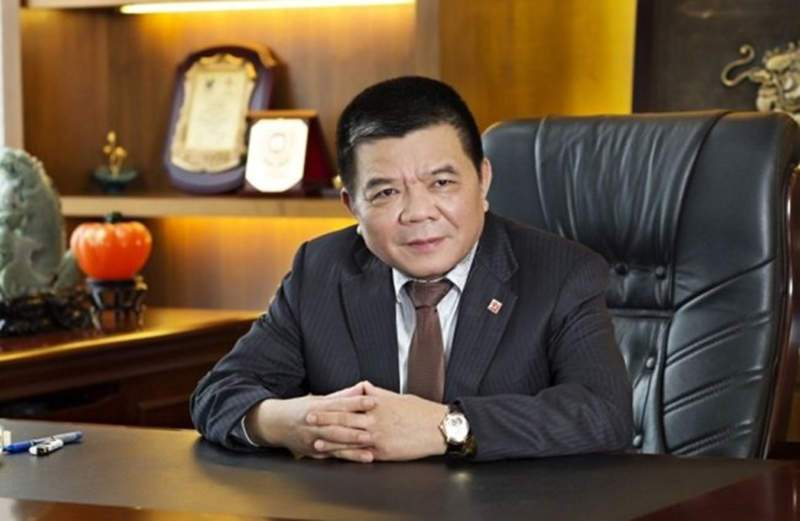A deal that saw MobiFone buy a massive 95 per cent of share in the privately AVG Audiovisual JSC has come under the spotlight.

A deal that saw MobiFone buy a massive 95 per cent of share in the privately AVG Audiovisual JSC has come under the spotlight.
The Party Central Committee’s Inspection Commission announced on June 2 violations in the purchase.
During the commission’s 26th session chaired by its head Tran Cam Tu in Hà Nội last week, it was revealed that the Party delegation to the Ministry of Information and Communications (MIC) has committed serious violations in the case.
The wrongdoings centre around a number of issues.
The committee failed to seriously implemented the principles of the Party's operation, violated the principle of democratic centralism and working regulations; showed a lack of responsibility, and relaxed its leadership, management, inspection and monitoring.
All of this, the inspection commission said, resulted in the MIC and MobiFone Telecommunication Corporation seriously infringing upon legal regulations on assessing, approving and conducting the project, resulting in huge losses to the State budget.
The commission's findings have now been handed over to the Government Inspectorate, urging for a thorough and speedy conclusion.
The commission has named Nguyen Bac Son as the man mainly responsible.
He is the former Party Central Committee member, former Secretary of the Party delegation and former Minister of the MIC.
He is accused of violating democracy and working regulations, showing signs of imposition and a lack of democracy in leadership and management work.
Son is also said to have breached a number of legal regulations, signed project-related documents that were delivered to the Prime Minister for approval and assigned his juniors to sign a number of project-related documents that were against regulations and not included in their duty description.
As Secretary of the Party delegation and Minister of the MIC since April, 2016, Son was found to take prime responsibility for the violations and shortcomings of the Party delegation to the MIC in the 2016-2021 tenure.
Truong Minh Tuan, Party Central Committee member, and Secretary of the Party delegation and incumbent Minister of the MIC has also been accused of a number of failings during the 2011-2016 tenure.
He is said to have violated the principle of democratic centralism and working regulations; showed a lack of responsibility and poor leadership when tasked to direct the implementation of the project and signed the ministry’s decision approving the project and a number of related documents against regulations, including documents that fell out of his duty.
Deputy Minister of the MIC Pham Hong Hai, who is member of the Party delegation to the MIC, was co-responsible for the committee’s violations during the 2011-2016 and 2016-2021 tenures.
Head of the ministry’s Department of Corporate Management Pham Đinh Trong committed a lot of serious violations in advising the ministry’s leaders to launch and implement the project.
The commission also concluded that MobiFone’s Party Committee’s Standing Board violated the principle of democratic centralism and working regulations, relaxed its leadership and steering, and conducted insufficient inspection and surveillance, resulting in the corporation’s serious mistakes in the project implementation.
Former Secretary of the Mobifone’s Party Committee and Chairman of the Member Council Le Nam Tra was mainly responsible for submitting a decision to the MIC to approve and carry out the project, and directly signing many relevant documents against regulations.
Vice Secretary of the Party Committee, member of the Member Council and General Director of Mobifone Cao Duy Hai committed serious violations in advising the council to submit a decision to the ministry for project approval and implementation, as well as signing many related documents against regulations.
The violations of those units and people led to huge losses to the State asset, and negatively impacted the equitisation of MobiFone and the prestige of Party organisations and the MIC, causing public concern.
The commission also found the responsibility of the Ministry of Planning and Investment, the Finance Ministry, the Government Office, the Ministry of Public Security and the People’s Committee of southern Bình Dương province in the case.
It asked the Party Civil Affairs Committees, the Party Committees and leaders of these units to make self-criticism, specifically into the responsibility of individuals and collectives involved to report to the Politburo, the Secretariat Committee and the commission.
Violations of BIDV

During the meeting, the commission also made a conclusion on the violations of the Party delegation to the Bank for Investment and Development of Vietnam (BIDV).
Accordingly, former Secretary of the Party Committee and former Chairman of the Board of Directors of BIDV Tran Bac Ha must also hold responsibility for violations of the standing board of the Party Committee for the 2010-2015, and 2015-2020 tenures.
Hà violated democratic centralism principles and working regulations, procedures and regulations in approving guidelines and decisions on lending, financial warranty, investment and debt management, including ratifying a loan worth VND4.7 trillion (US$208.8 million) to 12 companies involved in a legal case at the Vietnam Construction Bank.
The commission also found Đoan Anh Sang, former member of the standing board of the Party Committee and Vice Director General of BIDV and Tran Luc Lang, member of the standing board of the Party Committee and Vice Director General, shared the same responsibility to the loan.
The commission said the State Bank of Vietnam took responsibility for BIDV’s violations and required the Party delegation to the State Bank of Vietnam to make self-criticism, draw lessons from these violations, and discipline relevant individuals and collectives, promptly review, amend, and supplement banking regulations, and strengthen inspection and supervision over credit organisations. — VNS





